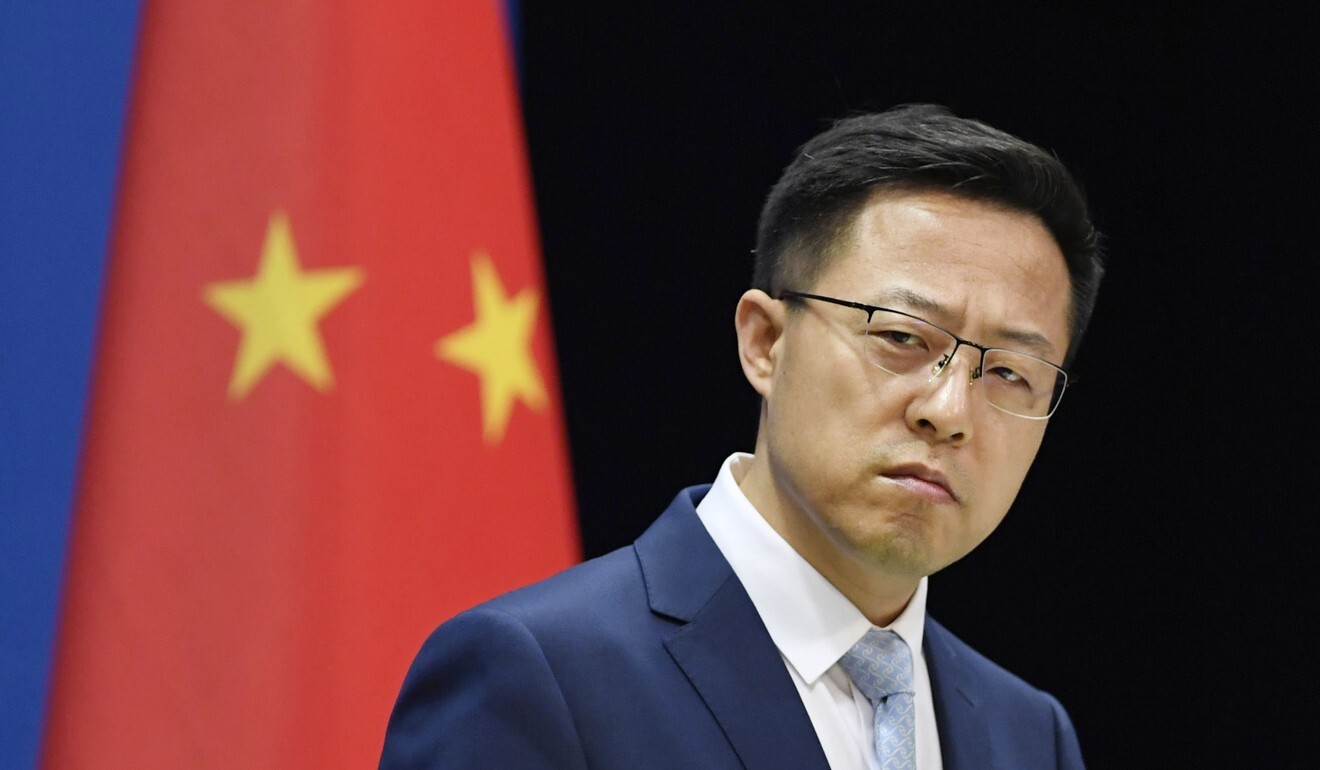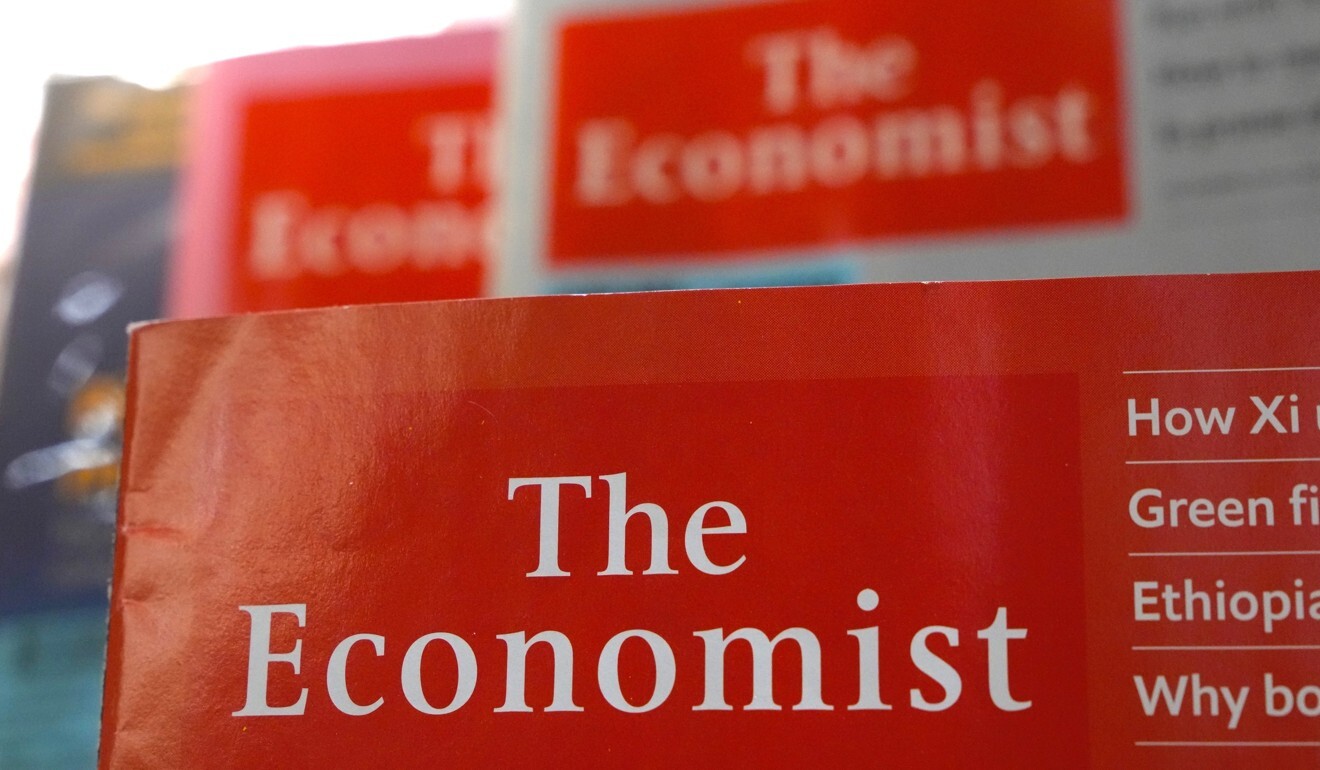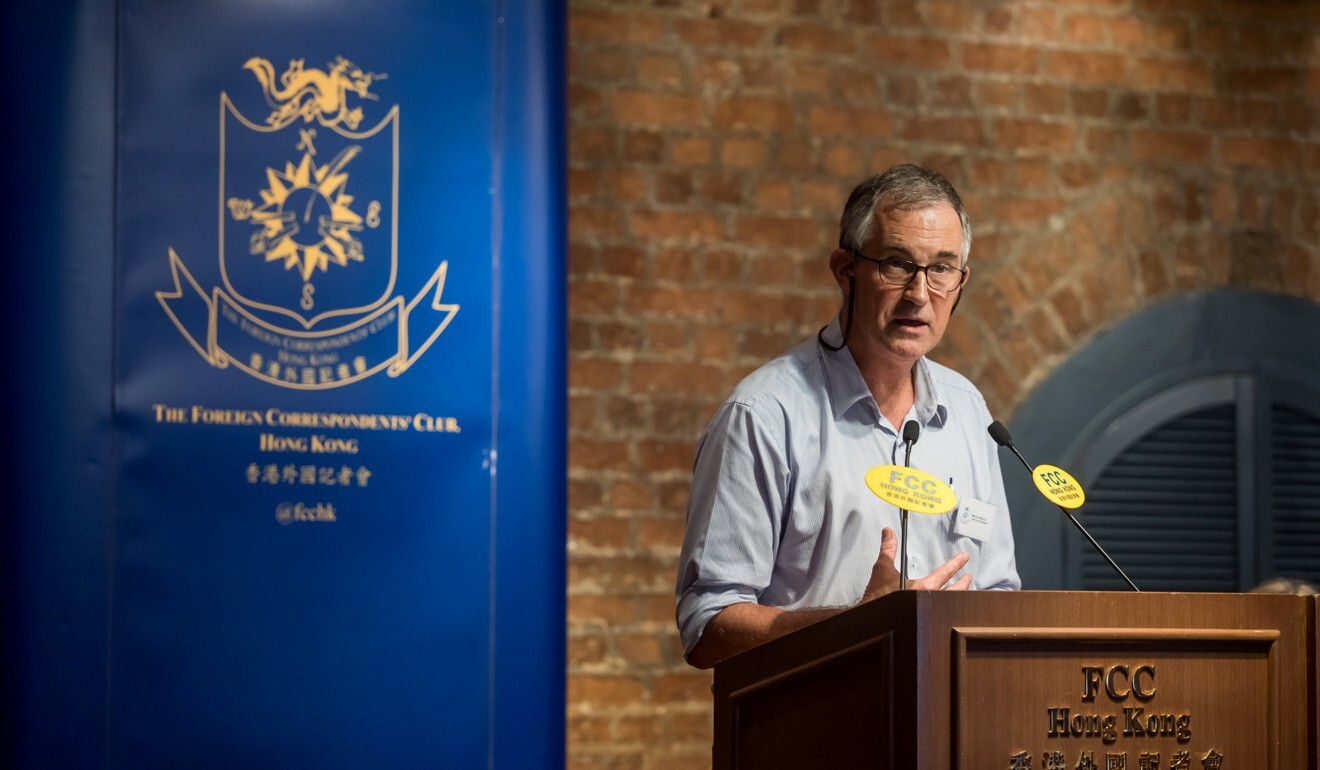
Hong Kong leader Carrie Lam compares her US ban with city’s visa rejection of Australian journalist, says governments have immigration autonomy
- Just a day earlier, the Chinese foreign ministry also stressed that city has a right to decide who gets visas
- Decision not to renew visa of Economist journalist Sue-lin Wong underscores rising concerns about press freedom, Foreign Correspondents’ Club says
Hong Kong’s leader has compared a US move to ban her from American soil with the visa rejection of an Australian journalist in the city, stressing each government’s autonomy over immigration rules.
The comments by Chief Executive Carrie Lam Cheng Yuet-ngor centred on the Immigration Department’s recent rejection of a visa renewal bid by journalist Sue-lin Wong, a China correspondent with The Economist. The move had drawn criticism, including from the Foreign Correspondents’ Club (FCC), which said the issue underscored rising concerns about press freedom in the city.
Referring to her own experience, Lam said: “The issue of visas is the autonomy or discretion of any government. For example, standing here as the chief executive of the Hong Kong Special Administrative Region, I have been denied a visa into the United States of America.
“Although I would dispute that, that was the autonomy and the discretion of the US government. It is always the discretion of the director of immigration to decide on the circumstances of each case, whether they will grant or extend a visa, or impose certain conditions.”
US sanctions Hong Kong leader for ‘implementing Beijing’s policies of suppression’
Without referring to the specific incident, Lam also stressed foreign journalists in Hong Kong should observe the Beijing-imposed national security law, even as she sought to provide reassurance of the city’s status as a regional hub for international media.
“We will continue to facilitate their stay, their operations and their employment in Hong Kong in accordance with our policies and, of course, we now also have a piece of [legislation] called the national security law,” she said.
She stressed national security was “clearly a very important consideration”, but added that the press would be entitled to protection under the city’s mini-constitution, the Basic Law, so long as they operated in a “legitimate manner”.

“Following the implementation of the national security law, Hong Kong society has got back on track and has improved its legal system. Hong Kong residents, alongside all journalists, enjoy all kinds of rights and freedoms, including freedom of the press,” he said.
As of April, 628 employees of foreign media outlets had Hong Kong work visas – 98 more than in the same month last year, Zhao said.
The Economist alone had expanded the number of its foreign employees in Hong Kong by 22 per cent, he added.
“Figures will not lie. I hope the relevant bodies will follow journalistic ethics and produce reports on Hong Kong in an objective and fair manner,” he said.

In a statement issued last Friday, Zanny Minton Beddoes, editor-in-chief of The Economist, said she regretted the Hong Kong government’s decision, which “was given without explanation”.
“Sue-lin is not currently in Hong Kong. We are proud of Sue-lin’s journalism,” she said. “We urge the government of Hong Kong to maintain access for the foreign press, which is vital to [its] standing as an international city.”
The FCC, meanwhile, urged the government to provide more clarity on its procedure for issuing journalists’ employment visas.
“We again call on the government to provide concrete assurances that applications for employment visas and visa extensions will be handled in a timely manner with clearly stated requirements and procedures, and that the visa process for journalists will not be politicised or weaponised,” it said.

The Immigration Department had earlier said it would not comment on individual cases.
Wong was the latest foreign journalist to have her visa denied by city authorities.
The Post has contacted The Economist for comment.


